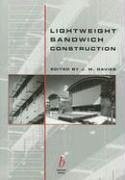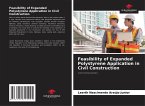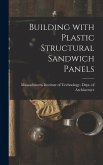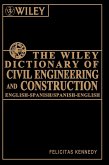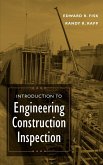Sandwich panels are being used increasingly as the cladding of buildings such as factories, warehouses, cold stores and retail sheds as they are light in weight, thermally efficient, aesthetically attractive and can be easily handled and erected. However, to date, an authoritative book on the subject has been lacking and this new reference work aims to fill that gap. The designer, specifier and manufacturer of sandwich panels require a great deal of information on a wide range of subjects. This book has been written by a group of European experts under the editorship of a UK specialist in lightweight construction and provides guidance on: * materials used in manufacture. * thermal efficiency and air-and water- tightness. * acoustic performance. * performance in fire. * durability. * special problems of sandwich panels in cold stores and chill rooms. * architectural and aesthetic considerations. * structural design at the ultimate and serviceability limit states. * additional structural considerations including fastenings, the effect of openings and the use of sandwich panels as load-bearing walls. * test procedures. The book concludes with some numerical design examples and is highly illustrated throughout.

